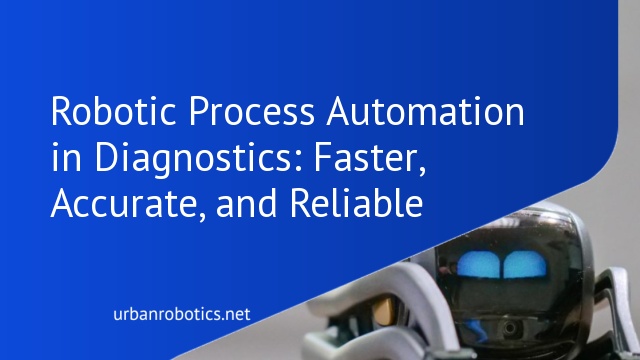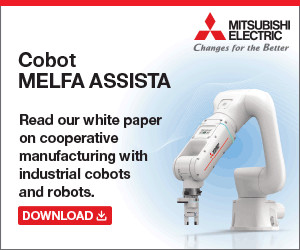In our pursuit of enhancing patient care and improving healthcare automation, we have witnessed the remarkable rise of Robotic Process Automation (RPA) in diagnostics. The adoption of RPA in healthcare has soared, particularly during the COVID-19 pandemic, where the need for faster and more accurate automation has become critical. With RPA, we can effectively revolutionize healthcare systems, reduce costs, and enhance the overall patient experience.
RPA allows for the seamless automation of various tasks, including healthcare data entry, medical billing and claim processing, appointments management, generating reports for physicians, and prescription management. By implementing RPA in healthcare, we can experience increased efficiency, significant cost reductions, and ultimately, provide better patient satisfaction. The integration of RPA into diagnostics and patient care is a game-changer, enabling us to deliver reliable and prompt diagnoses while optimizing our healthcare processes efficiently.
The Importance of RPA in Healthcare
Robotic process automation (RPA) plays a vital role in the healthcare industry by improving efficiency, reducing costs, and enhancing patient satisfaction. By automating processes and tasks, RPA streamlines healthcare data management, appointment scheduling, billing and claims management, asset tracking, data analytics, diagnostics, and post-treatment care. This allows healthcare providers to focus on critical tasks and deliver better patient care.
Streamlining Healthcare Processes
- RPA can automate appointment scheduling, saving time for healthcare professionals and increasing patient satisfaction.
- It optimizes billing and claims management, reducing errors and improving financial processes.
- RPA tracks assets such as medical equipment, ensuring their efficient use and preventing delays in patient treatment.
- Data analytics and diagnostics are enhanced through RPA, enabling better decision-making and personalized care.
- RPA can be used in post-treatment care, providing reminders and monitoring patient progress.
Advantages of RPA in Healthcare
- RPA reduces errors by following predefined rules, leading to more accurate and reliable diagnostics.
- It eliminates the need for manual processing, paperwork, and repetitive tasks, resulting in cost savings.
- RPA improves efficiency by automating various healthcare processes, allowing healthcare professionals to focus on critical tasks.
- The patient experience is enhanced through faster appointment scheduling, streamlined billing, and personalized care made possible by RPA.
| Advantages of RPA in Healthcare | Keywords |
|---|---|
| Reduces errors | Robotic Process Automation, Healthcare, Efficiency, Cost reduction, Patient satisfaction |
| Eliminates manual processing | Robotic Process Automation, Healthcare, Efficiency, Cost reduction, Patient satisfaction |
| Improves efficiency | Robotic Process Automation, Healthcare, Efficiency, Cost reduction, Patient satisfaction |
| Enhances patient experience | Robotic Process Automation, Healthcare, Efficiency, Cost reduction, Patient satisfaction |
Use Cases of Robotic Process Automation in Healthcare
Robotic process automation (RPA) has revolutionized the healthcare industry by automating various tasks and processes, improving efficiency and patient care. Let’s explore some of the key use cases of RPA in healthcare:
Data Sharing and Management
RPA can be used to streamline electronic records and data sharing, ensuring accurate and efficient management of patient information. By automating data entry, validation, and integration, healthcare providers can eliminate manual errors and enhance the overall quality of patient care.
Appointment Scheduling
Automating appointment scheduling through RPA eliminates the need for manual intervention and improves the efficiency of healthcare facilities. Patients can easily book appointments online, reducing wait times and increasing patient satisfaction.
Billing, Payments, and Claims Management
RPA simplifies and automates billing, payment processing, and claims management, reducing errors and improving financial processes. By automating these administrative tasks, healthcare providers can save time and resources, allowing them to focus on providing quality care to patients.
Asset Tracking
RPA can track and manage healthcare assets, such as medical equipment, ensuring their optimized utilization and preventing delays in patient treatment. By automating asset tracking, healthcare providers can improve operational efficiency and avoid costly equipment downtime.
Data Analytics and Diagnostics
RPA enables better data analytics and diagnostics by automating data collection, analysis, and reporting. This allows healthcare professionals to make more informed decisions and provide personalized care to patients, ultimately improving patient outcomes.
Post-Treatment Care and Monitoring
RPA can play a crucial role in post-treatment care by providing reminders, monitoring patients’ progress, and facilitating communication between healthcare providers and patients. This helps ensure continuity of care and enhances patient engagement and satisfaction.
| Use Cases | Benefits |
|---|---|
| Data Sharing and Management | – Accurate and efficient management of patient information – Improved data quality and integrity |
| Appointment Scheduling | – Reduced wait times – Increased patient satisfaction |
| Billing, Payments, and Claims Management | – Reduced errors and improved financial processes – Cost savings and improved revenue cycle management |
| Asset Tracking | – Optimized utilization of medical equipment – Prevention of delays in patient treatment |
| Data Analytics and Diagnostics | – Better decision-making through enhanced data analysis – Personalized care and improved patient outcomes |
| Post-Treatment Care and Monitoring | – Continuity of care and improved patient engagement – Enhanced patient satisfaction |
Advantages of RPA in Healthcare
Robotic Process Automation (RPA) brings numerous advantages to the healthcare industry, revolutionizing the way tasks and processes are automated. By leveraging RPA technology, healthcare providers can experience significant improvements in error reduction, cost savings, efficiency, and the overall patient experience.
1. Error Reduction
One of the key benefits of RPA in healthcare is its ability to drastically reduce errors. Robotic robots follow predefined rules and instructions with precision, eliminating the risk of human error that can occur with manual data entry and administrative tasks. This results in more accurate and reliable diagnostics, improving patient safety and outcomes.
2. Cost Savings
RPA helps healthcare organizations save costs by automating manual processes and eliminating the need for repetitive, time-consuming tasks. By streamlining administrative tasks such as data entry, appointment scheduling, and billing, RPA reduces the reliance on human resources and allows healthcare professionals to focus on providing quality patient care. The reduction in manual labor costs and increased efficiency leads to significant cost savings in the long run.
3. Improved Efficiency
Implementing RPA in healthcare improves overall operational efficiency. Robots can perform tasks at a much faster rate compared to manual processes, leading to reduced processing times and quicker turnaround for patients. Automation also enables healthcare professionals to access accurate patient information and data in real-time, enabling faster decision-making and enhancing the efficiency of diagnostic processes.
4. Enhanced Patient Experience
RPA enhances the patient experience by streamlining administrative tasks and reducing waiting times. Faster appointment scheduling, automated billing processes, and personalized care made possible by RPA contribute to a more seamless and patient-centric healthcare journey. Patients can experience improved access to care, reduced paperwork, and more personalized treatment plans, resulting in enhanced satisfaction and overall patient experience.
| Advantages of RPA in Healthcare |
|---|
| Error Reduction |
| Cost Savings |
| Improved Efficiency |
| Enhanced Patient Experience |
RPA and the Future of Healthcare
As we look ahead, the integration of Robotic Process Automation (RPA) with AI and machine learning (ML) holds immense potential for the future of healthcare. While RPA has already revolutionized healthcare automation by streamlining processes, the combination of RPA, AI, and ML will take healthcare to new heights.
With RPA, robots follow predefined rules and instructions to automate processes. However, with the integration of AI and ML, robots can make autonomous decisions and perform tasks in unfamiliar situations. This advancement enables robots to extract valuable information from unstructured data sources, make complex decisions, and engage in constructive dialogues with humans.
Imagine a future where healthcare robots leverage AI and ML capabilities to analyze vast amounts of patient data, identify patterns, and provide real-time insights for diagnosis and treatment. These advanced robots would not only enhance decision-making but also improve communication between healthcare professionals and patients, leading to personalized and effective care.
Automating Decision-Making and Communication
With the automation advancements that RPA, AI, and ML bring, healthcare professionals will be able to focus on more critical tasks while robots handle administrative and repetitive processes. This shift will lead to increased operational efficiency and improved patient care.
In addition, the integration of RPA with AI and ML will enable robots to assist healthcare professionals in decision-making by providing evidence-based recommendations and analyzing complex medical data. This collaboration between humans and robots will result in better outcomes and a higher standard of care.
| Benefits of RPA in the Future of Healthcare |
|---|
| Enhanced decision-making capabilities |
| Improved communication between healthcare professionals and patients |
| Increased operational efficiency |
| Personalized and effective patient care |
In conclusion, RPA, combined with AI and ML, will shape the future of healthcare by revolutionizing decision-making, enhancing communication, and driving automation advancements. As healthcare organizations embrace these technologies, they will unlock opportunities for improved patient care, increased efficiency, and better outcomes.
RPA Implementation and Benefits in Healthcare
Implementing robotic process automation (RPA) in the healthcare industry offers numerous benefits that can significantly impact efficiency, cost reduction, and the quality of care. By automating manual processes and streamlining administrative tasks, RPA allows healthcare professionals to focus more on patient care. This results in improved operational efficiency and better resource allocation, ultimately leading to cost reduction.
One of the key advantages of RPA in healthcare is its ability to enhance the quality of care by providing prompt and accurate diagnostics. With RPA, tasks such as healthcare data entry, medical billing, and claims management can be automated, reducing errors and improving the overall accuracy of patient records. Additionally, RPA enables personalized treatment plans and faster appointment scheduling, enhancing the patient experience.
RPA also plays a crucial role in optimizing healthcare operations. By eliminating manual processes and repetitive tasks, RPA improves efficiency and reduces the risk of errors. This technology can be integrated into various areas of healthcare, including electronic records management, appointment scheduling, billing and payments, data analytics, and post-treatment care. With RPA, healthcare providers can streamline their workflows, improve data accuracy, and ultimately deliver efficient and reliable diagnostics.
In summary, RPA implementation in healthcare brings substantial benefits such as cost reduction, improved efficiency, and enhanced quality of care. By embracing RPA, healthcare providers can optimize their operations, reduce errors, and deliver efficient and reliable diagnostics. With the ongoing advancements in automation and data analysis, RPA will continue to shape the future of healthcare, ultimately improving patient care and driving operational efficiencies.
RPA Use Cases in Specific Healthcare Fields
Robotic Process Automation (RPA) has proven to be an invaluable tool in various healthcare fields, enhancing efficiency and streamlining processes. Let’s explore some specific use cases of RPA in different areas of healthcare:
Customer Service
RPA can greatly improve customer service by automating tasks such as document processing, data validation, and approval workflows. By automating these processes, healthcare organizations can provide faster and more accurate responses to customer inquiries, resulting in enhanced customer satisfaction.
Accounting
In the accounting department, RPA can streamline financial operations, reporting, and compliance. By automating tasks such as payment processing, invoice management, and claims processing, healthcare organizations can reduce errors, improve financial accuracy, and ensure compliance with industry regulations.
Human Resources
RPA can also bring significant benefits to the human resources department. By automating processes such as onboarding and offboarding, employee data management, and submission processes, HR professionals can save time and focus on more strategic initiatives, such as talent acquisition and development.
Financial Operations
Financial operations within healthcare organizations can be optimized through the implementation of RPA. By automating tasks related to payment processing, invoice management, and claims processing, healthcare providers can reduce manual errors, improve financial accuracy, and streamline operations.
Supply Chain Management
Supply chain management is another area where RPA can have a significant impact. By automating processes such as acquisition, order processing, and inventory monitoring, healthcare organizations can improve efficiency, reduce costs, and ensure the timely availability of critical supplies and equipment.
Table: RPA Use Cases in Specific Healthcare Fields
| Healthcare Field | RPA Use Cases |
|---|---|
| Customer Service | Document processing, data validation, approval workflows |
| Accounting | Financial operations, reporting, compliance |
| Human Resources | Onboarding and offboarding, employee data management, submission processes |
| Financial Operations | Payment processing, invoice management, claims processing |
| Supply Chain Management | Acquisition, order processing, inventory monitoring |
By leveraging RPA in these specific healthcare fields, organizations can optimize processes, reduce manual errors, improve efficiency, and ultimately enhance the overall quality of patient care.
Choosing RPA for Healthcare Automation
When it comes to implementing Robotic Process Automation (RPA) in healthcare, there are several important factors to consider. One of the key considerations is choosing the right vendor for your organization’s needs. With over 150 RPA products available, vendor differentiation becomes crucial in making an informed decision.
Measuring the impact of RPA implementation is another critical aspect. It is essential to assess the productivity improvements, service quality enhancements, and innovations generated through the use of RPA. This evaluation will help in understanding the true value and benefits that RPA brings to healthcare automation.
Integration is also a vital factor to ensure the success of RPA in healthcare. RPA should be incorporated into a broader digital transformation process, allowing for seamless integration with existing systems and processes. This integration facilitates a strategic approach to automation and process optimization, maximizing the benefits of RPA.
Furthermore, the integration of Artificial Intelligence (AI) and Machine Learning (ML) technologies into RPA solutions empowers healthcare organizations with advanced automation capabilities and decision-making. This combination allows for even greater efficiency and accuracy in healthcare automation.
By adopting a strategic approach, selecting the right vendor, and considering factors such as impact measurement, integration, and the incorporation of AI and ML, healthcare organizations can harness the full potential of RPA. This strategic utilization of RPA in healthcare automation leads to improved efficiency, cost reduction, and ultimately, enhanced patient care.





